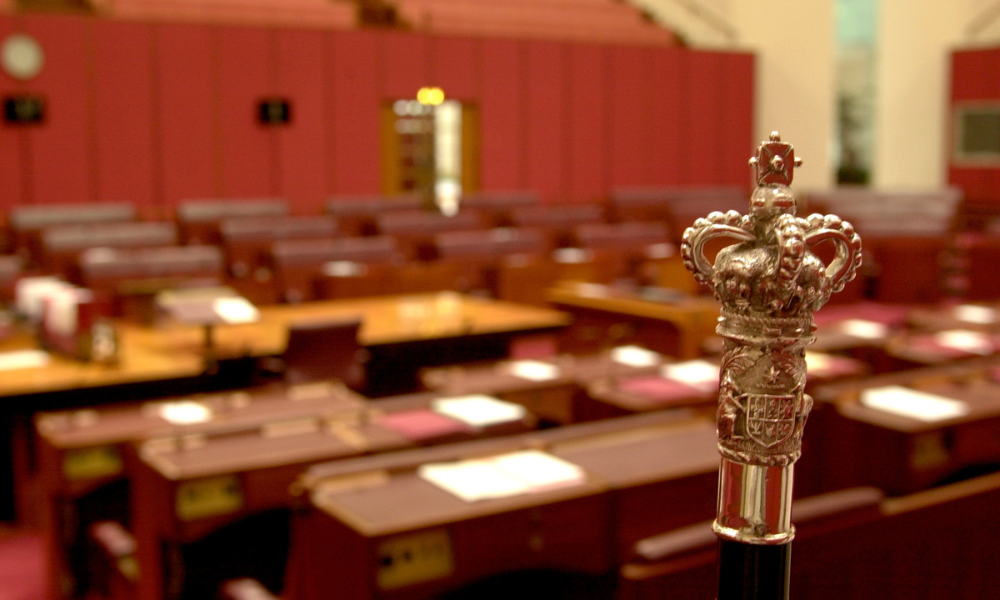Stakes are huge for Australia's investors and non-bank lenders

With The Greens holding the balance of power in the Senate, a bumpy road lies ahead for Labor’s proposed overhaul of the Australian self-managed super fund (SMSF) regime.
Despite copping a comprehensive drubbing in the federal election, the Greens maintain 11 seats in the Senate.
Labor Prime Minister Anthony Albanese needs these senators’ support if it hopes to pass legislation through the upper house.
But with diverging ideas about how to fix SMSF taxes (if indeed they need fixing at all), winning them over may prove difficult.
What Labor wants
The Albanese government’s proposed Division 296 tax bill would double the concessional tax rate on earnings from superannuation balances above $3 million from 15% to 30%, starting from 1 July.
Despite being a substantial tax increase, Greens Senator Nick McKim has argued that the $3 million threshold is too lenient. McKim’s party would rather see the threshold set at $2 million and ban SMSF borrowing for property investing altogether.
The Greens argued in the dissenting report that lowering the threshold to $2 million would still only hit less than 1% of accounts.
“There is no defensible reason why the wealthiest 0.5-1 per cent of super balances shouldn’t also be brought into the scheme,” the report said. It argues that “superannuation was not designed as, and should not be, a tax haven for the wealthy nor a way for the wealthy to receive tax handouts. Instead, superannuation tax concessions should provide assistance to those who need it, to save sufficient income for their retirement.”
Albanese ruled out lowering the threshold during the election campaign, but with mounting pressure and no guarantee of support from other crossbench senators, he may have little choice.
SMSF investors under threat
Perhaps more consequential for the mortgage and property sector is the Greens’ insistence on curtailing SMSF borrowing.
Under current rules, SMSFs can use limited recourse borrowing arrangements (LRBAs) to invest in property and shares – a practice now widespread, with Australian Taxation Office data showing 97% of SMSFs using LRBAs do so to purchase property.
The Greens argue that this is driving up housing prices while disadvantaging first-home buyers.
McKim has called for the removal of the borrowing exemption, saying: “Allowing SMSFs to continue borrowing to purchase investment properties under this proposed tax structure would be a recipe for disaster.”
Eliminating SMSF borrowing could potentially pull billions out of the property sector and ease house price inflation; although SMSF investors may simply deploy their capital elsewhere, thus cancelling out the effect.
Little alignment on indexation, unrealised gains
Labor currently opposes indexing the $3 million threshold to inflation, meaning more Australians will be caught in the tax net over time.
The Greens support indexation, aligning the party with industry voices who say the absence of it results in ‘bracket creep’ ensnaring middle-class Australians – particularly younger workers whose super balances are expected to grow substantially over time.
Meanwhile, lobbying from the SMSF Association and Financial Services Council has urged the government to reconsider the inclusion of unrealised gains and the lack of indexation in Division 296.
Labor can expect little to no support from the Coalition cohort in the Senate. Liberal Senator Andrew Bragg and others warn that without indexation, the $3 million threshold could be equivalent to just $1 million in real terms for younger workers by the time they retire – a concern echoed across the sector.
Labor’s plan to tax unrealised capital gains – that is, taxing increases in asset values even if the assets haven’t been sold – has garnered criticism too. Opponents claim the move will lead to liquidity issues, especially for SMSFs holding illiquid assets like property.
While the Greens have acknowledged these concerns, they’re not opposing Labor’s measure outright. However, numerous independent senators, including David Pocock, Jacqui Lambie and Tammy Tyrrell, staunchly oppose taxing unrealised gains.
Where does this leave Labor?
At face value, Division 296 represents a middle ground between the Liberals (who don’t want any changes at all) and The Greens (who want Labor to go further).
But if it’s a middle ground that satisfies neither party, Labor will likely need to make further concessions.
While the Greens hold sway in the senate, Albanese has warned against blocking the bill. “I think part of the reason why they’re not in the Parliament is that they held up public housing,” Albanese told the press in the aftermath of The Greens’ election battering.
Labor’s goal with Division 296 is to remove unwarranted tax breaks and bring super back to its core purpose, as stated in the proposed amendments: “The objective of superannuation is to preserve savings to deliver income for a dignified retirement, alongside government support, in an equitable and sustainable way.” At least in this regard, Labor and the Greens are aligned.
Discussing the matter with MPA, Murray Cowan, managing director of non-bank lender Better Mortgage Management (BMM), said he “wouldn’t be surprised” to see the threshold come down to $2 million, “because it doesn’t affect a lot of people at present, but would likely effect more in the future, if there is not some form of indexation.”
As go-to lenders for SMSF investors, non-banks like BMM, Pepper Money and RedZed have a lot of skin in this game and would be concerned about the impact a ban on SMSF investment lending, as proposed by the Greens, would have on business.
Thankfully, a ban on SMSF investing is unlikely, but further negotiations seem inevitable if Labor hopes to get anything through the senate.
Support for the Greens appears to have dropped in this election and Labor has increased the number of seats so; Labor would argue that they have a mandate to do things their way, but time will tell.



